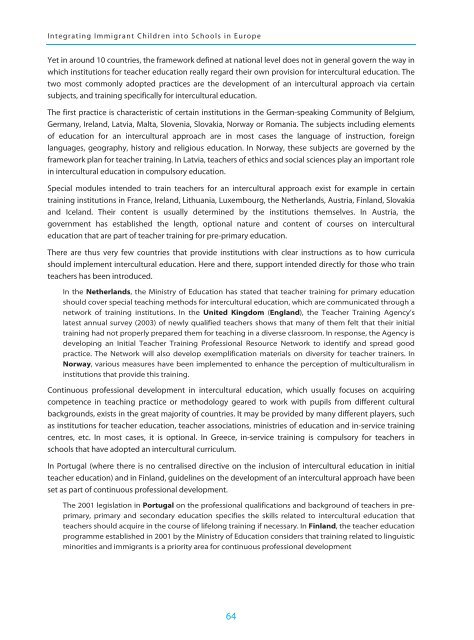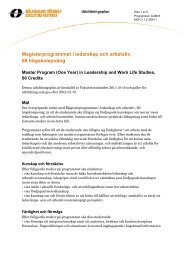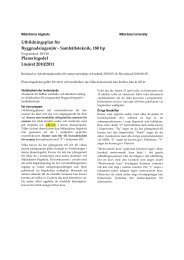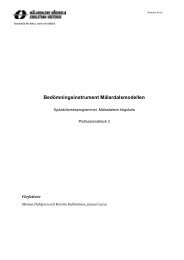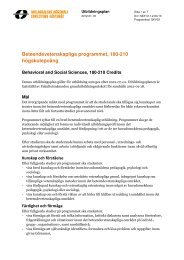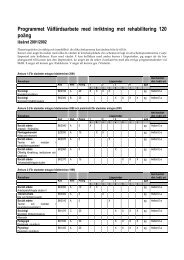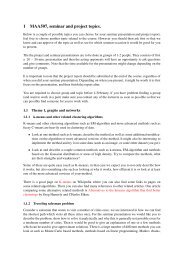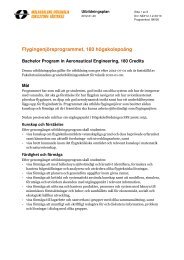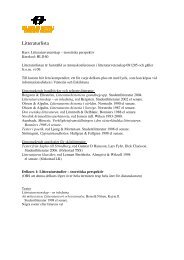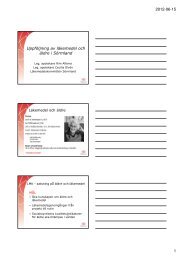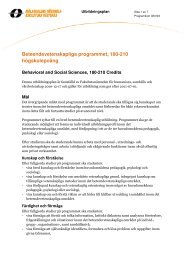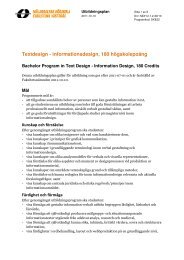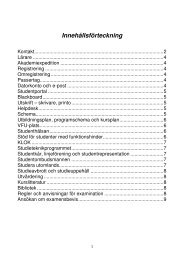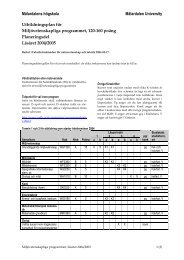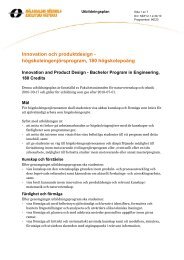Integrating Immigrant Children into Schools in Europe
Integrating Immigrant Children into Schools in Europe
Integrating Immigrant Children into Schools in Europe
Create successful ePaper yourself
Turn your PDF publications into a flip-book with our unique Google optimized e-Paper software.
<strong>Integrat<strong>in</strong>g</strong> <strong>Immigrant</strong> <strong>Children</strong> <strong><strong>in</strong>to</strong> <strong>Schools</strong> <strong>in</strong> <strong>Europe</strong>Yet <strong>in</strong> around 10 countries, the framework def<strong>in</strong>ed at national level does not <strong>in</strong> general govern the way <strong>in</strong>which <strong>in</strong>stitutions for teacher education really regard their own provision for <strong>in</strong>tercultural education. Thetwo most commonly adopted practices are the development of an <strong>in</strong>tercultural approach via certa<strong>in</strong>subjects, and tra<strong>in</strong><strong>in</strong>g specifically for <strong>in</strong>tercultural education.The first practice is characteristic of certa<strong>in</strong> <strong>in</strong>stitutions <strong>in</strong> the German-speak<strong>in</strong>g Community of Belgium,Germany, Ireland, Latvia, Malta, Slovenia, Slovakia, Norway or Romania. The subjects <strong>in</strong>clud<strong>in</strong>g elementsof education for an <strong>in</strong>tercultural approach are <strong>in</strong> most cases the language of <strong>in</strong>struction, foreignlanguages, geography, history and religious education. In Norway, these subjects are governed by theframework plan for teacher tra<strong>in</strong><strong>in</strong>g. In Latvia, teachers of ethics and social sciences play an important role<strong>in</strong> <strong>in</strong>tercultural education <strong>in</strong> compulsory education.Special modules <strong>in</strong>tended to tra<strong>in</strong> teachers for an <strong>in</strong>tercultural approach exist for example <strong>in</strong> certa<strong>in</strong>tra<strong>in</strong><strong>in</strong>g <strong>in</strong>stitutions <strong>in</strong> France, Ireland, Lithuania, Luxembourg, the Netherlands, Austria, F<strong>in</strong>land, Slovakiaand Iceland. Their content is usually determ<strong>in</strong>ed by the <strong>in</strong>stitutions themselves. In Austria, thegovernment has established the length, optional nature and content of courses on <strong>in</strong>terculturaleducation that are part of teacher tra<strong>in</strong><strong>in</strong>g for pre-primary education.There are thus very few countries that provide <strong>in</strong>stitutions with clear <strong>in</strong>structions as to how curriculashould implement <strong>in</strong>tercultural education. Here and there, support <strong>in</strong>tended directly for those who tra<strong>in</strong>teachers has been <strong>in</strong>troduced.In the Netherlands, the M<strong>in</strong>istry of Education has stated that teacher tra<strong>in</strong><strong>in</strong>g for primary educationshould cover special teach<strong>in</strong>g methods for <strong>in</strong>tercultural education, which are communicated through anetwork of tra<strong>in</strong><strong>in</strong>g <strong>in</strong>stitutions. In the United K<strong>in</strong>gdom (England), the Teacher Tra<strong>in</strong><strong>in</strong>g Agency’slatest annual survey (2003) of newly qualified teachers shows that many of them felt that their <strong>in</strong>itialtra<strong>in</strong><strong>in</strong>g had not properly prepared them for teach<strong>in</strong>g <strong>in</strong> a diverse classroom. In response, the Agency isdevelop<strong>in</strong>g an Initial Teacher Tra<strong>in</strong><strong>in</strong>g Professional Resource Network to identify and spread goodpractice. The Network will also develop exemplification materials on diversity for teacher tra<strong>in</strong>ers. InNorway, various measures have been implemented to enhance the perception of multiculturalism <strong>in</strong><strong>in</strong>stitutions that provide this tra<strong>in</strong><strong>in</strong>g.Cont<strong>in</strong>uous professional development <strong>in</strong> <strong>in</strong>tercultural education, which usually focuses on acquir<strong>in</strong>gcompetence <strong>in</strong> teach<strong>in</strong>g practice or methodology geared to work with pupils from different culturalbackgrounds, exists <strong>in</strong> the great majority of countries. It may be provided by many different players, suchas <strong>in</strong>stitutions for teacher education, teacher associations, m<strong>in</strong>istries of education and <strong>in</strong>-service tra<strong>in</strong><strong>in</strong>gcentres, etc. In most cases, it is optional. In Greece, <strong>in</strong>-service tra<strong>in</strong><strong>in</strong>g is compulsory for teachers <strong>in</strong>schools that have adopted an <strong>in</strong>tercultural curriculum.In Portugal (where there is no centralised directive on the <strong>in</strong>clusion of <strong>in</strong>tercultural education <strong>in</strong> <strong>in</strong>itialteacher education) and <strong>in</strong> F<strong>in</strong>land, guidel<strong>in</strong>es on the development of an <strong>in</strong>tercultural approach have beenset as part of cont<strong>in</strong>uous professional development.The 2001 legislation <strong>in</strong> Portugal on the professional qualifications and background of teachers <strong>in</strong> preprimary,primary and secondary education specifies the skills related to <strong>in</strong>tercultural education thatteachers should acquire <strong>in</strong> the course of lifelong tra<strong>in</strong><strong>in</strong>g if necessary. In F<strong>in</strong>land, the teacher educationprogramme established <strong>in</strong> 2001 by the M<strong>in</strong>istry of Education considers that tra<strong>in</strong><strong>in</strong>g related to l<strong>in</strong>guisticm<strong>in</strong>orities and immigrants is a priority area for cont<strong>in</strong>uous professional development64


